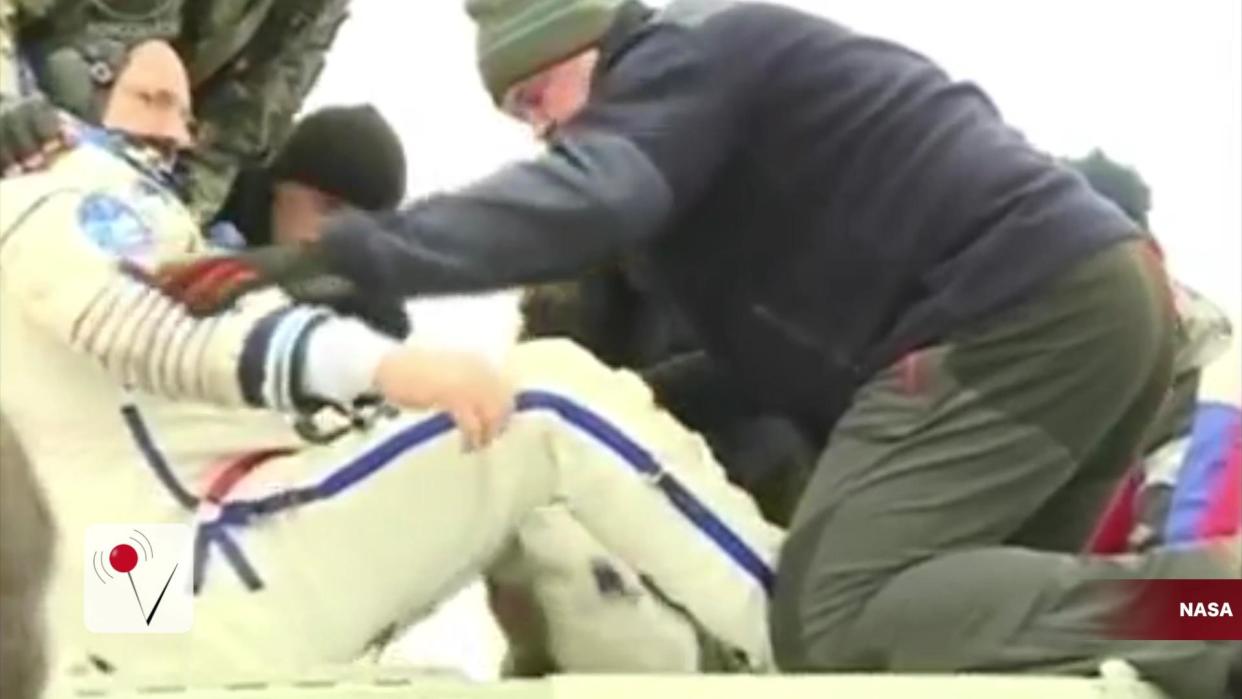An extreme astronaut just returned safely to Earth -- and scientists can't wait to see him

It's hard to think of anything more extreme than riding a rocket into space, but NASA astronaut Scott Kelly has set a new extreme space record, and made history in the process.
After reaching the International Space Station last year on March 27, Kelly embarked on a mission that has pushed the boundaries of American spaceflight.
SEE MORE: COMPLETE SPACE COVERAGE FROM AOL
And on Tuesday evening at approximately 11:26 p.m. ET, part of that mission came to an end.
After spending a record-breaking 340 days in space — longer than any American before him — Kelly arrived safely back on Earth, packed inside a snug Soyuz capsule with cosmonauts Sergey Aleksandrovich Volkov and Mikhail Korniyenko, who also just completed 340 days in space.
And touchdown! Welcome home @StationCDRKelly, officially back on Earth after spending a #YearInSpace. pic.twitter.com/vmfGJfCRpA
— NASA (@NASA) March 2, 2016
Kelly's trip back to solid ground marks an end to his epic life in space. Now the real work begins.
Sending an astronaut into space to live for nearly a year on the ISS is one of the most ambitious missions NASA has ever launched in its efforts to eventually send humans to Mars.
See photos of Kelly's return to Earth:
SEE ALSO: One of Scott Kelly's final photos from #YearInSpace might be one of his best
But there are many questions that need answers before NASA is ready for the red planet.
Now that Kelly is back on Earth, scientists can begin to answer some of those questions. They'll start by analyzing, in detail, how Kelly's 340-day stay in space has affected his body.
Life in space

Pete Souza - Official White House Photo by Pete Souza via NASA
Unfortunately, one of the most entertaining aspects about space is also the most harmful to the human body: microgravity.
Somersaulting in mid-air looks like great fun, but over time microgravity has a bizarre and potentially dangerous impact on physical performance.
For example, astronauts in the past have experienced impaired vision, changes in their sense of taste, and an increased flow of fluid to the brain.
Increased fluid flow to the brain is particularly concerning because when astronauts return to Earth, their blood pressure must readjust to Earth's gravity. But this takes time, and as a result some astronauts who have just returned can't stand up for more than 10 minutes without fainting.
Other concerns about long-duration spaceflight include a loss of bone and muscle mass, weakened immune system, and fatigue.
Kelly conducted a number of experiments during his time in space to help address these concerns, but now that he's back scientists can get a closer look at him.
They'll also observe how quickly he recovers. Recovery rate is important in predicting how much future astronauts — who land on Mars for brief periods — will be capable of doing, both physically and mentally, after spending 8.5 months in space, about the time it takes to get to Mars.
Take a look back at Scott Kelly's historic #YearInSpace from the beginning by clicking through the gallery below.
NOW WATCH: This recent discovery at Stonehenge clears up a huge misconception about the monument
See Also:
